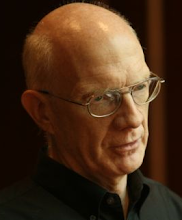I didn't really start out intending to have an Extreme Cyclist Holiday in Houston. I just meant to take my folder along and get some riding in, instead of spending all my time in a car, worrying about gas, parking, etc. Then things just sort of got out of hand.

Let's back up a little. At the last minute, I decided to go to the Rice University homecoming to hopefully see some old friends and hang out some with my older daughter Claire, who helps run a bookstore there. I booked a flight, and found my usual close-to-Rice hotel had some good rates, so I got a room. Then I thought, "Hey, I wonder if I can get from the airport to reasonably close to my hotel using mass transit?" Hopping on the Houston Metro website and entering a couple of addresses, I found that I could catch a bus right at the airport that took me to within a quarter-mile of my hotel with
no transfers. Wow. Sixteen miles in Houston for a buck and a quarter. Double wow. (The image at right is from the Houston METRO trip planner, very convenient.)
So, that axed the rental car, which saved me about a hundred bucks, probably a hundred thirty with gas. Ka-ching. But it also meant that my in-town trips would be either by bus, by taxi, or by bike. (Now
there's an easy decision.) Houston is flat, and the November weather in Houston is really perfect for riding (high 60's to mid 70's, and not terribly humid). And good weather (no rain) in the forecast.
So, to make a long story short, I spent an entire weekend (three days, Friday, Saturday, and Sunday) in Houston, Car City USA, and not once did I even
get into an automobile. It didn't seem strange until early Sunday when I realized that I hadn't been in one. Of course all my old classmates thought it weird, but I caught some whiffs of envy among the incredulity, when they asked, "You're kidding! You BIKED to the party?"
Good things: Saving money, great exercise, the flatness of Houston (my little Dahon folder is great for packing, but really not much for hills), Rice University bike parking facilities (basically, good secure bike racks everywhere), not having to worry about parking a car,
Daniel Boone's Cycle Shop, and great weather.
Some people complain about Houston drivers. I was told by the bus driver (friendly guy) coming into town that Houston drivers don't respect cyclists, but I had zero bad experiences over about 60 miles in 3 days. Of course I was in a university part of town, where there are quite a few cyclists, but overall, no complaints from me about Houston motorists.
Not so good things: Houston has the world's narrowest bike lanes (where they have them), and the paving in Houston is the pits. Literally. Basically, Houston is built on the flat gulf-coast plains that have a lot of clay in the soil. This "gumbo" as it is called is just hell on pavement. I found myself weaving a lot more than I wanted to be to avoid really nasty potholes and large cracks.
I even had an accident because of the bad roads! It was late at night and I was riding back to the hotel from my daughter's apartment. I hit a bad pothole (hard to see) and went right over the bars (not hard to do on a short-wheelbase, small-wheeled folding bike.) Luckily, no injuries beyond some bruised kneecaps, as I wasn't going all that fast. Not even any torn clothes.
The funny thing is, I picked myself up and dusted myself off, determined the bike was rideable (it needed the derailleur hanger bent back into proper position) and proceeded home. The next morning, I got up early and looked at bike and saw what I missed the night before: my cyclo-computer was missing. Muttering under my breath at my obliviousness the night before, I hopped on the bike and went back to the accident site (I figured if I waited, there was more chance of it getting smashed by a car) and there it was, flung up in a driveway, fully operational. I clipped it back on and went back to the hotel for breakfast.
But it's been almost 30 years since I had an over-the-bars experience! I'll probably be sore for several more days, but the only cure for that is more riding. I really wouldn't mind not ever going over the bars again, ever. Good thing I was wearing gloves. But the accident seemed to underscore the "extreme" quality of the weekend.
I have to say though, I wouldn't hesitate in the least to do a pure "bike holiday" again (except for the accident part). A little planning can yield a lot of riding, and a lot of fun.















